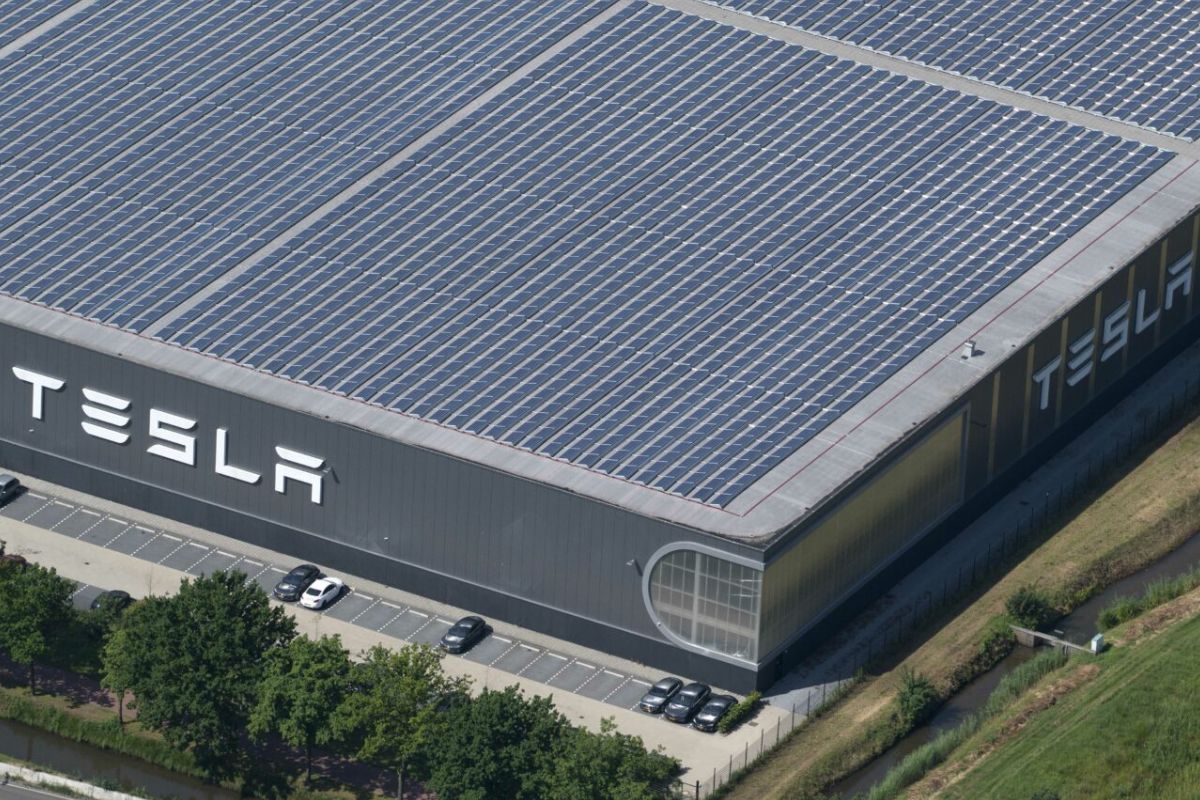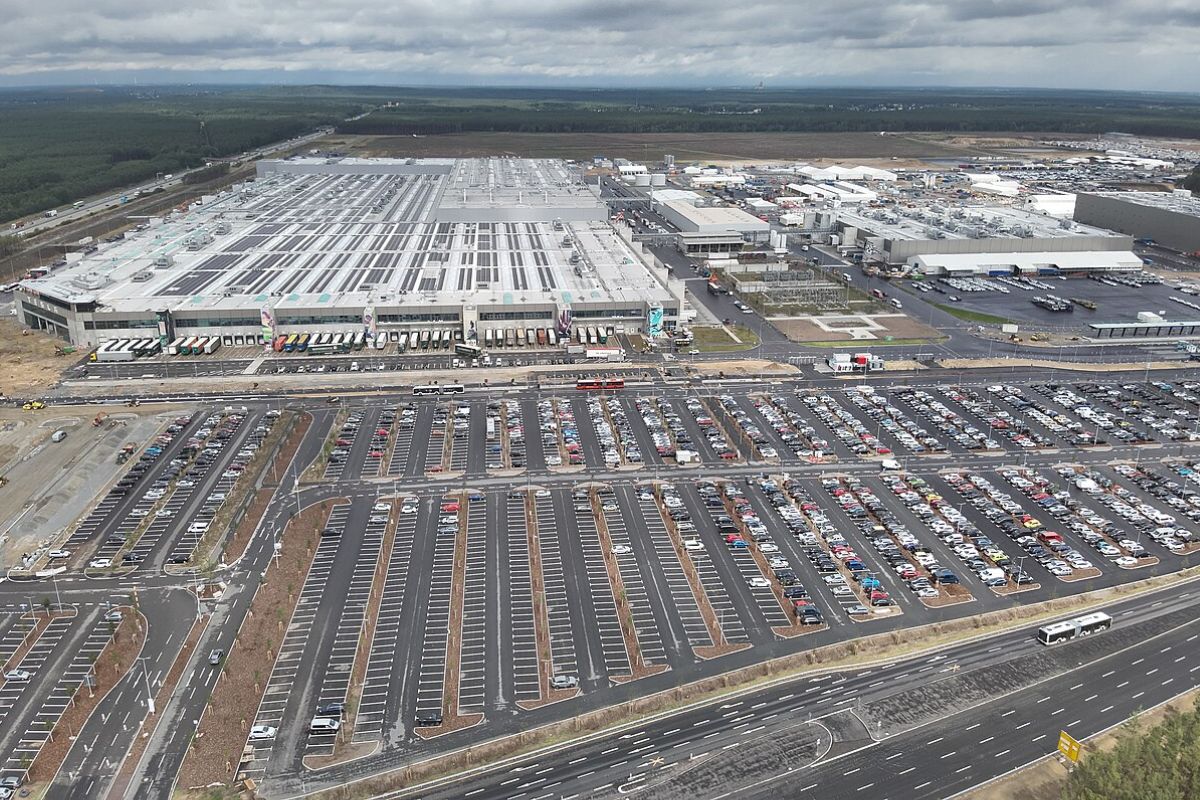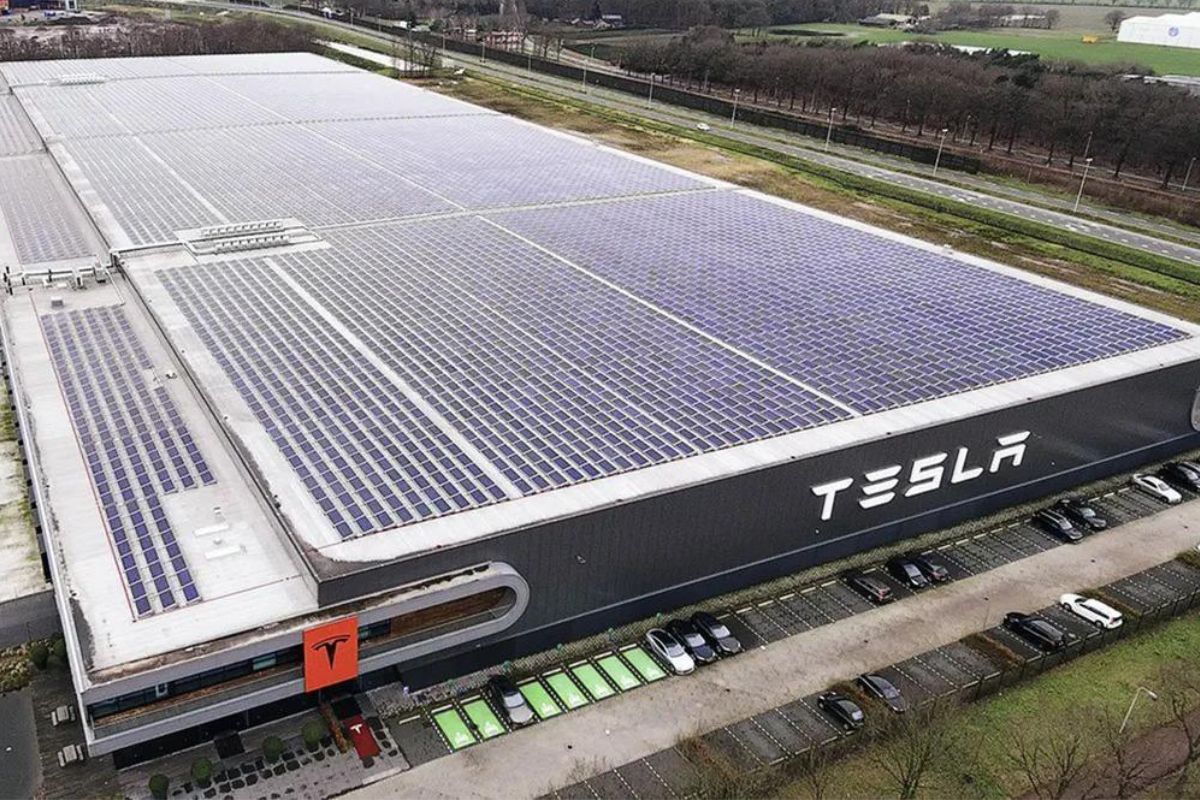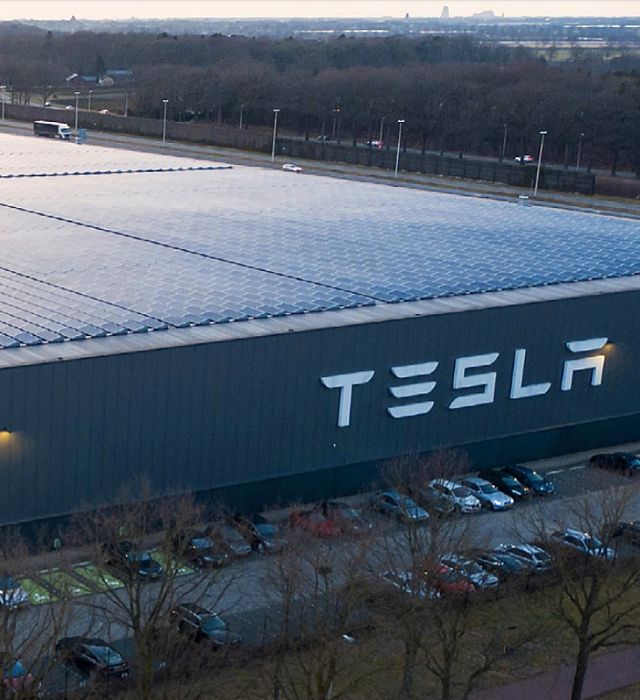
The iconic Tesla Gigafactory, an example of how solar energy transforms the world.
Tesla’s Gigafactory, located in Nevada, has become an iconic symbol of the convergence between electric mobility and solar energy. In this article, we will explore how Tesla’s Gigafactory has emerged as a prominent example of how solar energy is transforming the world and paving the way for a more sustainable future.
1. Tesla and its Commitment to Sustainable Energy
From its inception, Tesla, led by Elon Musk, has been committed to the vision of a sustainable, emission-free future. The Gigafactory, inaugurated in 2016, is a tangible testament to this commitment. Its construction was driven by the need to meet the growing demand for electric vehicle batteries, but it also marked the beginning of a comprehensive approach to sustainability.

The iconic Tesla Gigafactory, an example of how solar energy transforms the world.
2. Solar Energy: The Heart of the Gigafactory
The Gigafactory is not only a hub for battery production but also stands out for its extensive solar energy infrastructure. Rooftops covered with solar panels capture the sun’s energy, turning the Gigafactory into a highly efficient and energy-independent facility. This massive adoption of solar energy not only powers the factory’s operations but also generates surpluses returned to the electrical grid.
3. Environmental Implications: Carbon Footprint Reduction
The integration of solar energy into Tesla’s Gigafactory has had a significant impact on reducing the facility’s carbon footprint. On-site renewable energy generation has allowed a decrease in dependence on conventional energy sources, contributing to the fight against climate change. This sustainable approach reinforces Tesla’s position as a leader in the transition to cleaner mobility and a greener energy system.

The iconic Tesla Gigafactory, an example of how solar energy transforms the world.
4. Innovation and Scale: Keys to the Gigafactory’s Success
The Tesla Gigafactory stands out not only for its colossal size but also for its innovative approach to energy production and storage. The factory’s ability to operate on a large scale, combined with advanced technologies, has optimized efficiency and reduced costs associated with battery manufacturing and energy management. This model has become a benchmark for other industries seeking to adopt more sustainable practices.
5. The Legacy of the Gigafactory: Inspiring a Sustainable Future
The impact of Tesla’s Gigafactory extends beyond its walls. It serves as a beacon of inspiration for other companies and governments, demonstrating that the transition to sustainable energy sources is not only possible but also profitable. Elon Musk’s vision of a future where electric mobility and solar energy are the norm has found a solid starting point and a role model in the Gigafactory.

The iconic Tesla Gigafactory, an example of how solar energy transforms the world.
Tesla’s Gigafactory as a Catalyst for Change
Tesla’s Gigafactory is not just a production facility; it is a testament to how solar energy can transform not only the automotive industry but also the global energy landscape. By adopting large-scale sustainable practices, Tesla has set a standard for the industry, encouraging others to follow the path towards renewable energy and sustainable production.
This emblematic example highlights the need for an accelerated transition to cleaner and more sustainable energy sources. As Tesla’s Gigafactory continues its operations, it is not just manufacturing batteries for electric vehicles but also building a future where solar energy is the backbone of a more efficient and environmentally friendly energy system.
